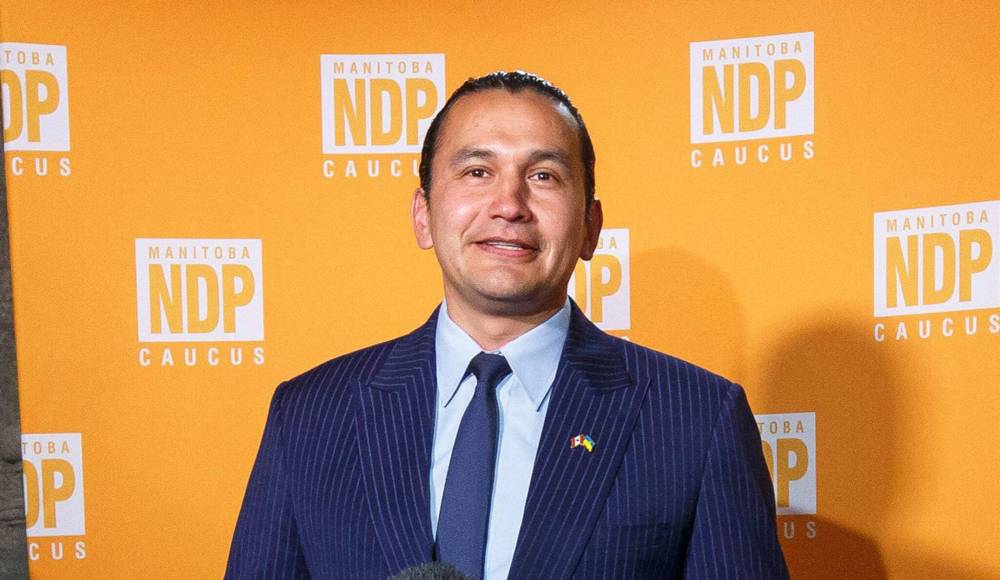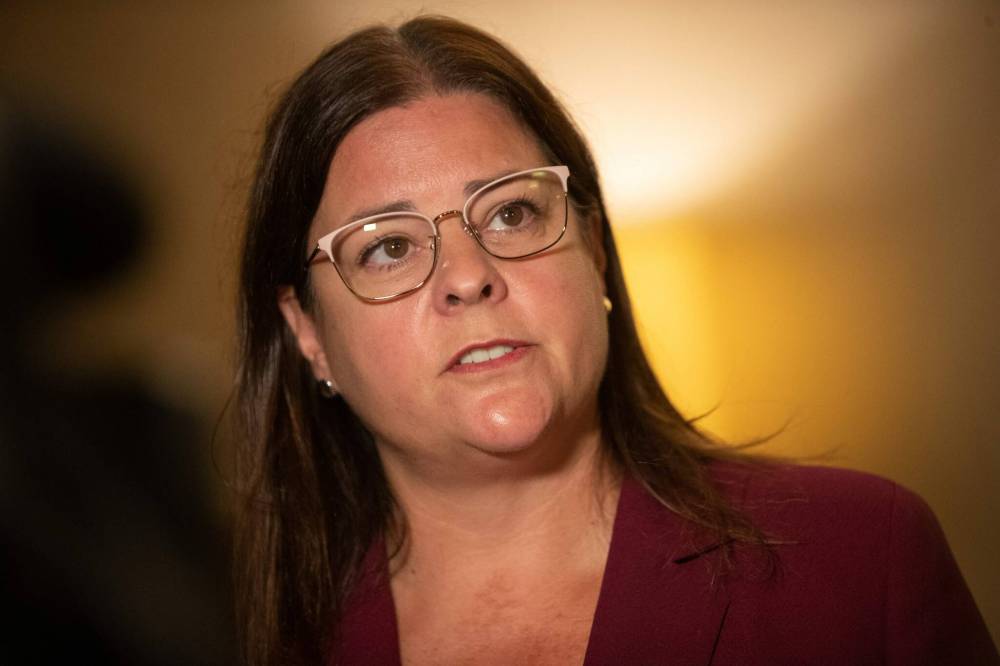Tories push Hydro rate bill through to next stage
Advertisement
Read this article for free:
or
Already have an account? Log in here »
To continue reading, please subscribe:
Monthly Digital Subscription
$0 for the first 4 weeks*
- Enjoy unlimited reading on winnipegfreepress.com
- Read the E-Edition, our digital replica newspaper
- Access News Break, our award-winning app
- Play interactive puzzles
*No charge for 4 weeks then price increases to the regular rate of $19.00 plus GST every four weeks. Offer available to new and qualified returning subscribers only. Cancel any time.
Monthly Digital Subscription
$4.75/week*
- Enjoy unlimited reading on winnipegfreepress.com
- Read the E-Edition, our digital replica newspaper
- Access News Break, our award-winning app
- Play interactive puzzles
*Billed as $19 plus GST every four weeks. Cancel any time.
To continue reading, please subscribe:
Add Free Press access to your Brandon Sun subscription for only an additional
$1 for the first 4 weeks*
*Your next subscription payment will increase by $1.00 and you will be charged $16.99 plus GST for four weeks. After four weeks, your payment will increase to $23.99 plus GST every four weeks.
Read unlimited articles for free today:
or
Already have an account? Log in here »
Hey there, time traveller!
This article was published 29/09/2022 (1171 days ago), so information in it may no longer be current.
The Progressive Conservative government pushed ahead Thursday with five bills the NDP had held back until the fall — including one that amends Manitoba Hydro and Public Utilities Board legislation.
NDP Leader Wab Kinew has said repeatedly the PC bill would increase electricity bills by five per cent a year and give cabinet more say over how much Manitobans have to pay by requiring the publicly-owned power company to pay down its massive debt.
In question period Thursday, he asked the PCs to withdraw with Bill 36.

MIKE DEAL / WINNIPEG FREE PRESS FILES
NDP Leader Wab Kinew has said repeatedly the PC bill would increase electricity bills by five per cent a year and give cabinet more say over how much Manitobans have to pay by requiring the publicly-owned power company to pay down its massive debt.
The PCs scoffed at NDP claims Bill 36 will raise hydro rates for Manitobans.
“This bill protects ratepayers and Manitoba Hydro,” Premier Stefanson said, adding the PUB decides Hydro’s rates, not government. She urged the Opposition to read the bill.
“It’s good for Manitoba citizens,” Stefanson said before it passed second reading.
It now proceeds to the committee stage. More than 40 Manitobans have registered to speak to the government about the bill.
Finance Minister Cameron Friesen stood up and read the explanatory note accompanying the bill. It states rate increases cannot exceed five per cent or the rate of inflation, whichever is less. The former schoolteacher quipped about the NDP’s reading comprehension and questioned its honesty.
Friesen noted under the previous NDP government, hydro rates increased by more than five per cent in 2005, 2007, 2009 and 2013, and asked if the Opposition NDP would stand up and support the PC bill to cap rates.
The NDP’s Hydro critic, MLA Adrien Sala, said the PUB ensures Manitobans don’t overpay for electricity and is “the only thing standing between this government and rate hikes.”
The bill would have PUB rate application hearings for Manitoba Hydro held every three years, instead of annually. It sets a debt reduction target without saying how the Crown corporation is to achieve that, if not by raising rates.
The utility’s debt ballooned over several years under the former NDP government when megaprojects, including a new generating station and a main transmission line, ran a combined $3.7 billion over budget. (The Tories have been in power since 2016.)
While the regulator has approved rate hikes of between two and four per cent most years — including a five per cent hike in 2008 — a credit rating agency warned in May the increases are not enough.

DANIEL CRUMP / WINNIPEG FREE PRESS FILES
“This bill protects ratepayers and Manitoba Hydro,” Premier Stefanson said, adding the PUB decides Hydro’s rates, not government.
The NDP also called on the PCs to withdraw Bill 22 that would lift restrictions on cosmetic pesticide use.
Environment Minister Jeff Wharton said the Tory government is “following the science,” and the pesticide has been approved by Health Canada.
NDP environment critic, MLA Lisa Naylor, said Health Canada’s “blanket approval” for the pesticide use on crops wasn’t intended for lawns in city parks or home daycares. She said it’s rejected by the World Health Organization and shouldn’t be allowed back into Manitoba.
“No jurisdiction in the world has rolled back pesticides restrictions. (Former premier) Brian Pallister may be gone but his agenda carries on with this group,” the Wolseley MLA said.
“No jurisdiction other than (one run by the) NDP builds policy based on ideology,” Wharton shot back.
carol.sanders@freepress.mb.ca
— with files from The Canadian Press

Our newsroom depends on a growing audience of readers to power our journalism. If you are not a paid reader, please consider becoming a subscriber.
Our newsroom depends on its audience of readers to power our journalism. Thank you for your support.
History
Updated on Thursday, September 29, 2022 7:53 PM CDT: adds attribution to The Canadian Press



